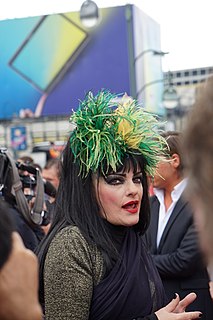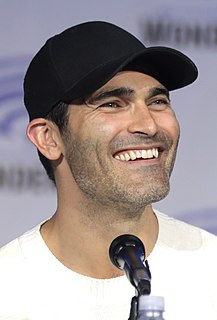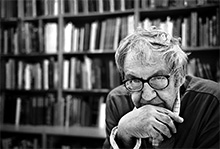A Quote by Sebastiao Salgado
So many times I've photographed stories that show the degradation of the planet. I had one idea to go and photograph the factories that were polluting, and to see all the deposits of garbage. But, in the end, I thought the only way to give us an incentive, to bring hope, is to show the pictures of the pristine planet - to see the innocence.
Related Quotes
Seeing the world anew, as if it were new, is as old as writing. It's what all painters are trying to do, to see what's there, to see it in a way that renews it. It becomes more and more urgent as the planet gets worn flat and forest after forest is slain to print the paper for people's impressions to be scrawled down on. It becomes harder and harder to be original, to see things with an innocent eye. Innocence is much tied up with it. As the planet gets progressively less innocent, you need a more innocent eye to see it.
We’re turning everything on the planet into food for humans so we’re cutting down the rainforests, displacing all of the animals, and we’re doing all this to feed humans... ... Imagine if there were only 2 billion people polluting? We’re already overpopulated. I feel we’ve become a parasite on this planet. If this population keeps growing, we’ll just keep devouring the planet, and I don’t think it’s going to stand for that very long.
It changes your perspective to be able to look out the window and see the planet. One of the thoughts that I had when I first got up here was, 'We really do live on a planet, and we are in a solar system, and we are flying through space right now.' I mean, this is something that you know, obviously, but to see the planet - it's amazing.
It shouldn't be so difficult to determine what a planet is. When you're watching a science fiction show like 'Star Trek' and they show up at some object in space and turn on the viewfinder, the audience and the people in the show know immediately whether it's a planet or a star or a comet or an asteroid.
What if a small group of world leaders were to conclude that the principal risk to the Earth comes from the actions of the rich countries?... In order to save the planet, the group decides: Isn't the only hope for the planet that the industrialized civilizations collapse? Isn't it our responsibility to bring that about?
I love telling stories, I love for someone to see something, and go, "Oh, wow, I've never thought of it that way." Because I've had those moments in my life, where I go, "Oh, my God, I've never looked or approached this topic and had that insight or had that idea come to mind," to where it changes your life, it changes the way you see certain things. I love that. I think that's such a cool thing that we get to do by sharing stories, whether they're fiction or nonfiction.
If everybody on the planet today had the same standard of living as the average European or American, we would need three new planets. But we don't even have one new planet. We have this one, and with the way we're polluting it, the shrinking water resources, the climate change, the experimentation with plants... the outlook is grim.
Stories? We all spend our lives telling them, about this, about that, about people … But some? Some stories are so good we wish they’d never end. They’re so gripping that we’ll go without sleep just to see a little bit more. Some stories bring us laughter and sometimes they bring us tears … but isn’t that what a great story does? Makes you feel? Stories that are so powerful … they really are with us forever.
I think I’ve said this before many times—that photography allows you to learn to look and see. You begin to see things you had never paid any attention to. And as you photograph, one of the benefits is that the world becomes a much richer, juicier, visual place. Sometimes it is almost unbearable — it is too interesting. And it isn’t always just the photos you take that matters. It is looking at the world and seeing things that you never photograph that could be photographs if you had the energy to keep taking pictures every second of your life.

































